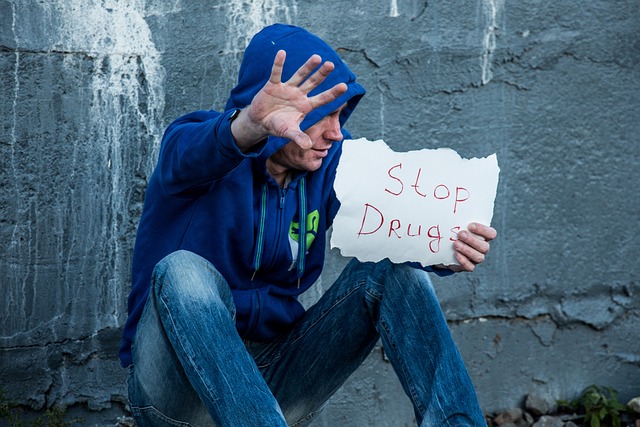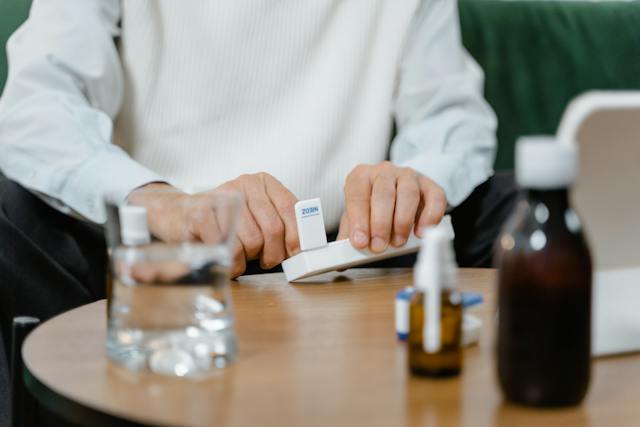
Table of Contents
A Comprehensive Guide To Finding The Right Treatment and Support for Your Drug Addiction
Addiction is a chronic and complex disease. The problem with it is that it affects the brain. Yes, apart from negative consequences, you can be taken to compulsive behaviors with substance use disorder. When you get addictive, you will start experiencing an intense craving for an activity or substance to which you are addicted.
Above all, it will be hard to manage the cravings for people with addiction. Developing an addiction can involve substances like alcohol and drugs. Even, some non-substance-based behaviors like gaming or gambling are dangerous if you become addicted to them.
Know the Common Types of Addiction
Before you get help, it is better to know the common kinds of addiction. Here are the details to know:
Substance Addiction
If you are addicted to drugs or alcohol, you are facing substance abuse. This is true particularly if it has taken you to psychological and physical dependence.
Behavioral Addiction
This encompasses compulsive behaviors in particular activities. Examples include shopping, gaming, and gambling. If the engagement in these activities affects a person’s daily life, it is better to contact a support group.
Food Addiction
This is associated with developing an unhealthy relationship with food. Examples of this addiction include a lack of control around eating and binge eating.
Internet Addiction
This involves compulsive or excessive use of social media, online gaming, and the internet. This kind of addiction can have an ill effect on mental health.
Understanding the Neurobiological Aspect of the Term Addiction
Many of us believe that people in drug use have weak willpower. Also, we see them as people with a lack of self-control. In reality, addiction has a basis in neurobiology. Yes, it affects the reward center of the brain.
Let us consider that a person becomes addicted to drugs. His brain will start releasing dopamine. In turn, he will feel a sense of pleasure. It is this pleasure that reinforces the behavior. When the person continues using drugs, his brain turns desensitized.
After this, he will need an increased amount of drugs to achieve the same level of pleasure. By increasing the dosage slowly, this person gets into a situation called drug misuse.
Spotting The Symptoms of Drug Addiction
Are you wondering whether you have got to a stage where it becomes tough to overcome drug usage? How to know whether you cannot stop using the substance anymore? Here are some symptoms to watch out for:
Physical and Psychological Warning Signs
Based on the behavior or substance involved, the symptoms of addiction may vary. However, you can look for the following physical warning signs:
- Overlooked personal hygiene
- Slurred speech and poor coordination
- Changes in your weight or appetite
- Dilated pupils and bloodshot eyes
The psychological warning signs might include the following:
- Changes in your sleep patterns
- Increased lying and secrecy
- Emotional instability, mood swings and irritability
- Intense longing for the behavior or substance
In addition to the physical and psychological warning signs, you can also spot your opioid addiction from the following changes in your behavior:
Behavioral Changes
- Withdrawal from previously enjoyed hobbies and social activities
- Legal issues connected with addictive behavior or substance use
- Participating in risky behaviors to obtain the activity or substance to which you are addicted
- Neglecting responsibilities at home, school, or work.
With these behavioral changes, your addiction is defined. So, it is better to think about joining a support group.

Self-Awareness – The Road To Recovery from Substance Use Disorder
Addiction may result in a lot of ill effects. Once you understand its stimulant nature, it is easy for you to get lost in the cycle of compulsions and desire to take more. You will do this without considering the wreckage that it leaves behind.
But the first step towards the road to recovery begins with self-awareness. When you are self-aware, you can step back. Above all, after stepping back, you can see the negative effects of using the drug. You will understand that in addition to affecting your health, it can also impact your family.
When you get self-awareness, you can understand that it has created a lot of stress in your love life. Even, it has started creating a negative impact on your professional life. You will realize that this is not right. It has started affecting both me and the people around me.
Self-awareness is a seed of change. It will motivate you to understand the risk factors of addiction. Also, it will help you understand the importance of overcoming addiction, You will understand the importance of a treatment plan for you.
Acknowledging The Harm As A Risk Factor
Remember that acknowledging the harm is good. It is not about blaming or shaming yourself. It is about identifying the greater risk of addiction. It involves facing the truth. Indeed, it can be painful. But, you will understand the consequences of nicotine or other drugs.
Acknowledging the harm is all about spotting the opportunities you have missed in your life without treating your gambling disorder. You will understand the strained relationships and broken promises due to drug use and addiction.
But remember that self-awareness and acknowledging the harm are not the destination. They are ongoing processes. With them, you can effectively manage your withdrawal symptoms. You will be prepared to handle the challenges coming in your way of recovery.
It will create self-determination in your mind that you should not relapse even under peer pressure.
Addressing the Stigma When Using Drugs
Again, stigma is the biggest enemy that prevents you from seeking help. It is nothing but the thought that you cannot recover from addiction as it is not treatable. First, you should get out of thoughts that increase your risk of developing an addiction.
Start working around your stigma and tell yourself that recovery from addiction is highly possible. Stay away from negative words. Use positive words instead. Understand the science of addiction. Yes, it works on your brain. So, recovery also begins from your brain and your thought process.
Know the Treatment Options To Overcome Addiction
Yes, nowadays, you can find professional de-addiction centers. Even, you can get their support round-the-clock. They will guide on you every move in your journey towards achieving sobriety. Also, remember that you are not alone in the recovery journey.
The journey will become enjoyable with the support group. Stay free to discuss the right treatment program for you. So, buckle up for a drug-free life. Nothing is going to stop you, including environmental factors.
FAQs
When you wish to stop taking the drug, you have different options to get help in the USA. You can find help from the following sources:
- National Helpline for Substance Abuse and Mental Health Services
- Local Treatment Centers near you
- Your primary care physician might help
- You can contact support groups
- You can find many online resources
- Therapists and counselors can help you
- You can join rehabilitation programs
- Enrolling in rehabilitation programs might help
- Community mental health services can help
- You can talk to your friends and family.
DSM stands for Diagnostic and Statistical Manual. It is the criteria for substance use disorder. It has classified 9 types of addiction. Examples include tobacco, stimulants, anxiolytics, hypnotics, sedatives, opioids, inhalants, hallucinogens, cannabis, caffeine, and alcohol. A drug counselor can help you get out of all these addictions. Regardless of whether you are struggling with substance or activity addiction, you can get the intended relief.
According to the American Psychiatric Association, addiction develops when the pleasure circuits in your brain get overwhelmed. This is why people hate getting addiction medicine. The reward system in your brain plays a major role in many activities, including addiction. However, professional help will take you out of the addiction.










